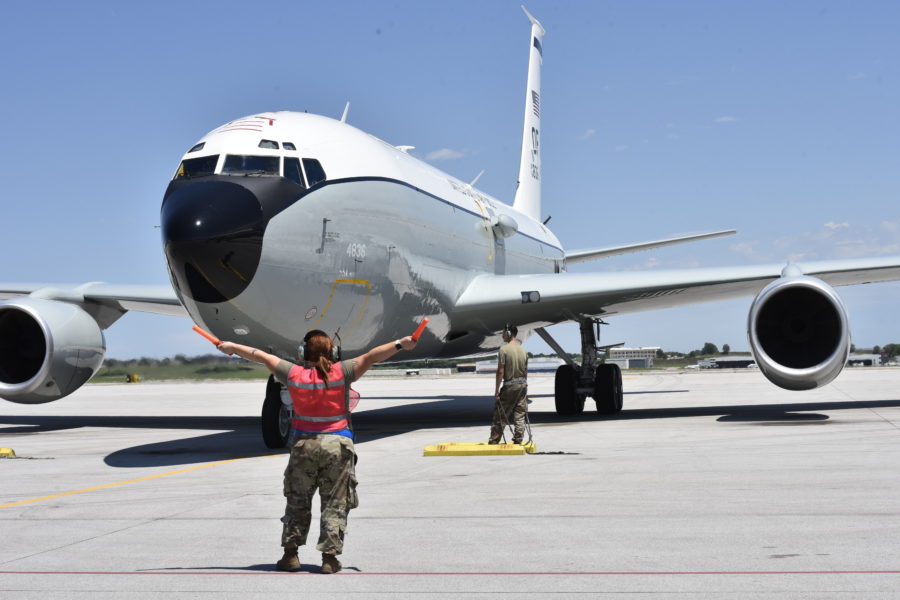The U.S. has not seen anything that indicates it should adjust its nuclear posture, a senior U.S. military official told reporters Oct. 3. The official’s remarks came as the Biden administration has sought to calm tensions following Russian President Vladimir Putin’s hints that the country might consider the use of nuclear weapons.
After announcing the illegal annexation of four Ukrainian regions, Putin said he would use “all available means” to defend the territories, which Russia does not fully control. In comments that caused anxiety in the West, the Russian leader also said the U.S. had created a “precedent” for the use of nuclear weapons in warfare during World War II.
The senior military official declined to say whether the U.S. has detected any movement of Russia’s nuclear forces, citing the need to protect American intelligence. But the official’s overall assessment reinforced recent comments by Defense Secretary Lloyd J. Austin III.
“To be clear, the guy who makes that decision, I mean, it’s one man,” Austin said in an interview with CNN that aired Oct. 2. “There are no checks on Mr. Putin. Just as he made the irresponsible decision to invade Ukraine, you know, he could make another decision. But I don’t see anything right now that would lead me to believe that he has made such a decision.”
Putin is reportedly in an increasingly precarious situation in Ukraine, with his forces in disarray as a result of Ukraine’s counteroffensive in the east and south of the country. In response, Russia announced a partial mobilization of around 300,000 troops, leading to some displays of unrest across the country.
Some of Putin’s most prominent and vocal supporters have blasted the country’s military leadership and have demanded tougher action, including the potential use of nuclear weapons.
Russia has around 2,000 short-range tactical nuclear weapons that analysts worry it could use on a battlefield or as a show of force.
Though the two sides are not currently engaged in arms control talks, Russia has adhered to the New START treaty, which limits the U.S. and Russian long-range nuclear arsenals, U.S. officials say. The treaty has been extended until 2026.
Another senior Defense Department official criticized Russia’s loose talk of nuclear weapons.
“Russia is a major nuclear power,” Celeste Wallander, assistant secretary of defense for international security affairs, said at an event Oct. 3 hosted by the Center for Strategic and International Studies. “It sets the tone for the global community along with other major nuclear powers in responsible stewardship of a nuclear capability. And that does not include saber-rattling and threatening small, weaker, non-nuclear countries on his border, specifically Ukraine.”
“This facile reliance on nuclear threats is really concerning,” she added.
